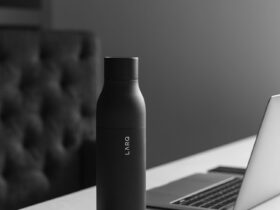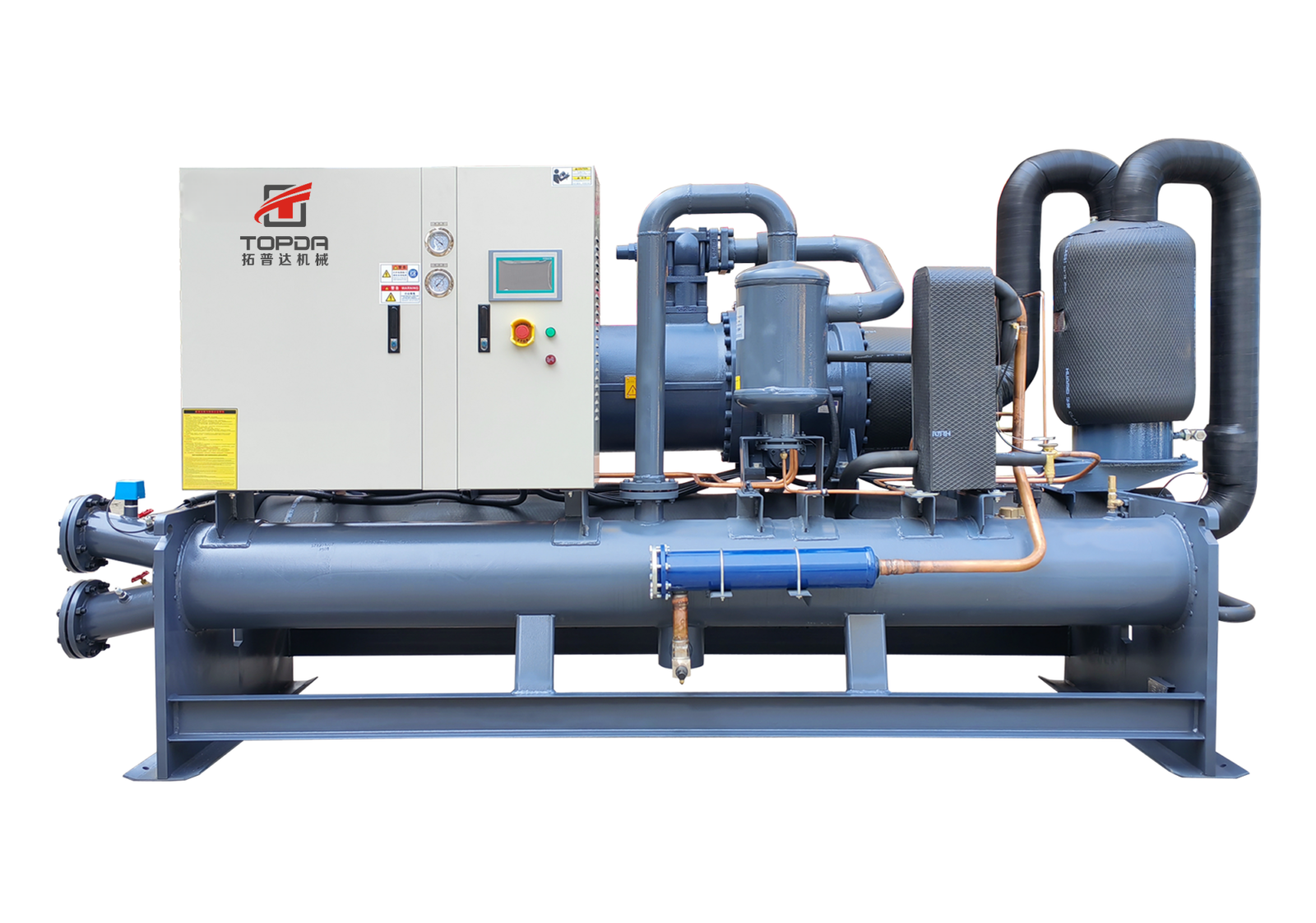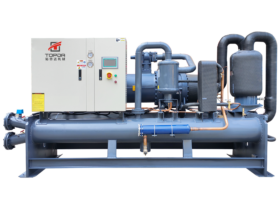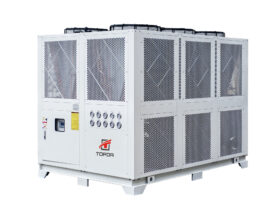
Industrial chillers are a vital piece of equipment in many industrial processes, serving the purpose of cooling and tempering a wide range of substances, including liquids, gasses, and semi-conductors. Chiller systems are used in a variety of industries, such as power generation, chemicals, and manufacturing, and can be found in plants and facilities all over the world. In this article, we will explore what industrial chillers are, their common applications, and some of the benefits of using these systems.
What Are Industrial Chillers?
A industrial chiller is an electro-mechanical system designed to cool a medium by circulating a refrigerant that is pumped through coils in the system. There are different types of industrial chillers, including reciprocating, screw compressors, and centrifugal, each with its own strengths and weaknesses. These chillers are designed to handle high-capacity cooling, typically ranging from 50 tons to 20,000 tons or more. Chiller systems are versatile, with the ability to accommodate different refrigerants and coolant capacities, making them an attractive option for companies requiring efficient and reliable temperature control.
Common Applications
Industrial chillers are widely used in various industries due to their ability to accurately and consistently control temperature and cooling demand. Some common applications of industrial chillers include:
- Pipe freezing and thawing services for construction and oil fields
- Power plants to cool transformers, turbines, and other equipment
- Cleaning and degassing for equipment and machinery in industrial plants
- Wet etching and wafer cooling for the micro-electronics industry
- Sensor testing and calibration
- Battery cooling for stationary power and renewable energy
- Oil and gas operations, such as drilling, fracturing, and pipe installation
- Food and pharmaceutical processing
- High-purity applications, including labs and cleanrooms
In each of these industries, industrial chillers are crucial for maintaining consistent and accurate temperatures, reducing production downtime, and prolonging equipment lifespan. In industries that require high-pressure gas supplies, chillers may also be used for de-gassing and moisture reduction.
Benefits
There are numerous benefits to using industrial chillers in your manufacturing or processing facility, including:
- Increase Efficiency: Industrial chillers reduce energy consumption, costs, and environmental impact.
- Improved Temperature Control: Consistent and controlled temperature can improve product quality and efficiency.
- Flexibility: Chillers can handle changing cooling demands, adjusting capacity as needed to prevent downtime.
- Space and Installation Flexibility: Modular design and compact structures enable chillers to fit into confined spaces.
- Error Tolerance: Chillers are designed to operate accurately in high-temperature applications with little to no disruption to normal operations.
In conclusion, industrial chillers play a vital role in a wide range of industrial applications, providing high-performance temperature control and coolant for processes that require exact temperature specifications. With various design configurations, refrigerant options, and capacities to meet the specific needs of diverse industries, industrial chillers offer numerous benefits to plants and facilities worldwide, contributing to increased efficiency, cost savings, and precise product quality.
Conclusion
In an industrial setting, achieving optimal temperatures is crucial to efficiency, productivity, and the overall success of any facility. Industrial chillers have evolved to meet the precise needs of various industries, delivering exceptional temperature control and energy efficiency. Whether operating a small or large plant, implementing an industrial chiller can have a substantial impact on production, with significant energy savings, enhanced performance, and improved environmental responsibility. By understanding the purposes, applications, and benefits of industrial chillers, industrial facilities can improve the performance and efficiency of their equipment, ultimately gaining a competitive edge in an ever-changing global market.
Frequently Asked Questions
Q: What type of industries use industrial chillers?
A: Industrial chillers are used in a variety of industries, including power generation, chemicals, food, pharmaceuticals, electronics, and manufacturing.
Q: What are some of the benefits of industrial chillers?
A: Industrial chillers can improve efficiency, provide accurate temperature control, adjust to changing cooling demands, be installed in small or large spaces, operate reliably with minimal downtime, and provide cost savings and increased production.
Q: Can industrial chillers handle extreme temperatures?
A: Industrial chillers are designed to handle a wide range of temperatures, from -10°F to 200°F, making them suitable for many applications.
Q: What are some factors that influence the selection of industrial chillers?
A: Important considerations when selecting an industrial chiller include the process or industry, temperature range required, flow rate and capacity needed, and cost-benefit analysis.
Q: Are industrial chillers maintenance-intensive?
A: Industrial chillers typically require regular maintenance to ensure optimal performance and minimize downtime. This can include regular cleaning, checks of temperature and pressure levels, and replacement of wear and tear parts.












Leave a Reply